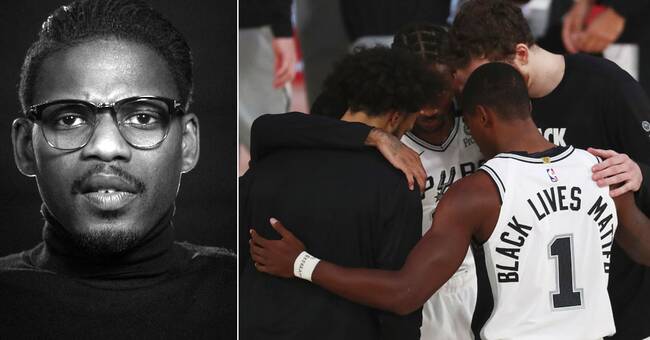Talking racism has for me been synonymous with whining. I did not want to risk being categorized as a sacrificial cardigan, the one who strokes along the walls with his hands in his pockets in the wake of self-pity.
With my sports friends, there was no talk of racism, there was a culture of silence!
But it was enough that our eyes met as a manifesto for the racist invectives that were going on.
The events hung in the air and added to the mood.
But something happened when the video showing George Floyd suffocated to death by a police officer spread around the world.
It became a matter that did not go unnoticed.
For the first time, I started getting questions.
For the first time, I had to deal with myself, go back in time and think about what I had experienced.
I contacted old sports buddies to take the talk we never had, namely talk racism.
For the first time we spoke out!
About own reflections, experiences and the different faces of racism.
The explicit form that is clear, the implicit form that is difficult to grasp and the structural form that runs like a hybrid between clear and obscurity.
It was leaden to tear up old wounds.
Sweden is not the United States, but the crux of racism is here as well.
The stories made me question my own worldview.
It dawned on me that I had been relatively spared.
I belong to a group of athletes who have represented Sweden at the highest level, it has its advantages.
The racism that was a natural part of my everyday life in the first half of my life is almost blown away, of course it is reminded from time to time but not to the same extent.
The question I asked myself was: What have I done to make it easier for the next generation living in what I grew up in?
I have represented diversity in the national team and perhaps instilled hope that everyone can get to the national team regardless of background.
But I have also made invisible the challenges that I have been aware of.
It is important that we who have an inside perspective have the strength, courage and time to talk about what we experience.
It is equally important that those who see, hear and feel that it is not right to act.
Otherwise, it will only be a quasi-question that comes and goes.
If racism is to become a memory only for the athletes of the future who deviate from the norm, constructive dialogue and action plans are required.
It must start from the top government: from unions, districts and associations that work proactively with leaders who in turn spread the message.
It is not enough with a policy or a basic document that is dusted in a folder.
The only constant is change.
And the time to execute is now.

